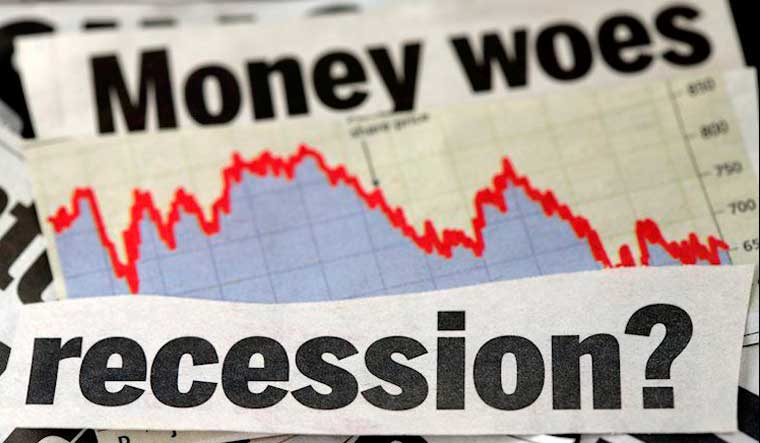Policies of rich nations are pushing the world towards a recession that will cause worse damage than Covid-19, warned a United Nations (UN) report released Monday night. It is projected that global GDP (gross domestic product) will slow down to 2.2 per cent by next year.
The UN warning comes on the heels of similar downward projections by other bodies, indicative of a looming recession that will follow a string of misfortunes, from Covid-19 to post-Ukraine oil and gas crisis.
While the Organisation for Economic Co-operation and Development (OECD) had issued a similarly dire warning that global growth will fall to 2.2 per cent, the International Monetary Fund’s (IMF) figure put it at 3.6 per cent for both 2022 and 2023. While the World Bank had optimistically projected a global growth figure of 4.1 per cent in January, convinced that the worst of the pandemic was behind us, it was soon forced to revise it to 2.9 per cent by June, thanks to Putin’s misadventures in Ukraine.
The UN has also now joined in. The 2022 Trade and Development Report by the United Nations Conference on Trade and Development (UNCTAD) says, “Monetary and fiscal policy moves in advanced economies risk pushing the world towards global recession and prolonged stagnation, inflicting worse damage than the financial crisis in 2008 and the COVID-19 shock in 2020."
It expects the world economy to grow 2.5 per cent this year, and with recession likely to hit soon, further decelerating to 2.2 per cent. This will mean that the world economy will continue to remain below pre-pandemic figures by the end of next year with a cumulative shortfall of more than 17 trillion dollars, or one-fifth of the world’s income.
According to the report, rapid interest rate increases and fiscal tightening in advanced economies, combined with the cascading crises resulting from Covid pandemic and the war in Ukraine, have already turned a global slowdown into a downturn with the desired soft landing looking unlikely.
The report called as “an imprudent gamble” the belief of central banks which failed to rein in inflation thus far that just hiking interest rates will bring down prices without causing a recession. Such a move could only “usher in a period of stagnation and economic instability for many developing countries and some developed ones,” the report said.
With inflation way beyond limits in India since the end of last year, the nation’s central bank, RBI, has hiked interest rates four times in a row this year so far.
“There’s still time to step back from the edge of recession,” UNCTAD Secretary-General Rebeca Grynspan said. “We have the tools to calm inflation and support all vulnerable groups. This is a matter of policy choices and political will. But the current course of action is hurting the most vulnerable, especially in developing countries and risks tipping the world into a global recession.”
World being pushed into a recession that will be worse than Covid, says UN
Global GDP is projected to slow down to 2.2 pc by next year
 Representative image
Representative image
📣 The Week is now on Telegram. Click here to join our channel (@TheWeekmagazine) and stay updated with the latest headlines
read more
-

Germany Christmas market attack: Suspect 'an Islamophobe', says minister; death toll rises to five
-

Public safety bill referred to joint committee, ADB to fund second phase of Nagpur Metro: Fadnavis
-

‘False allegations, my character is being assassinated’: Allu Arjun on ‘Pushpa-2’stampede
-

The Allah Ghazanfar hype is real! Mumbai Indians' Afghanistan bowler enters cricket record books by...
-

Feeling bored? Now chat with ChatGPT using landline phones, message on WhatsApp
*Articles appearing as INFOCUS/THE WEEK FOCUS are marketing initiatives


